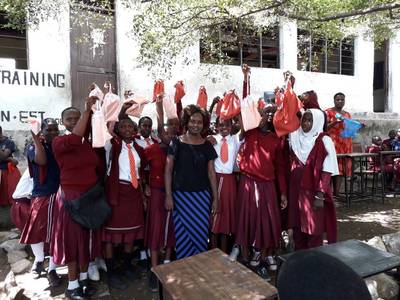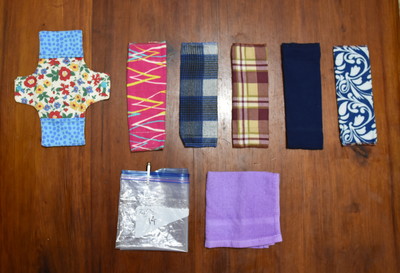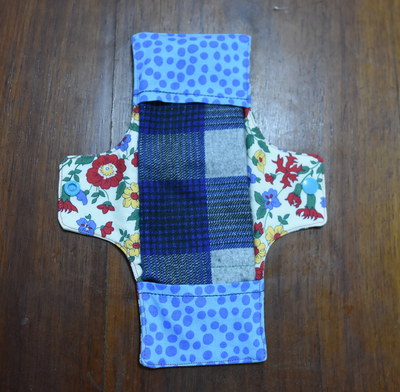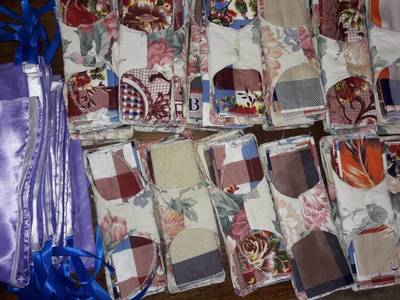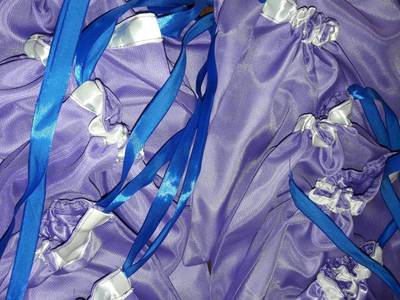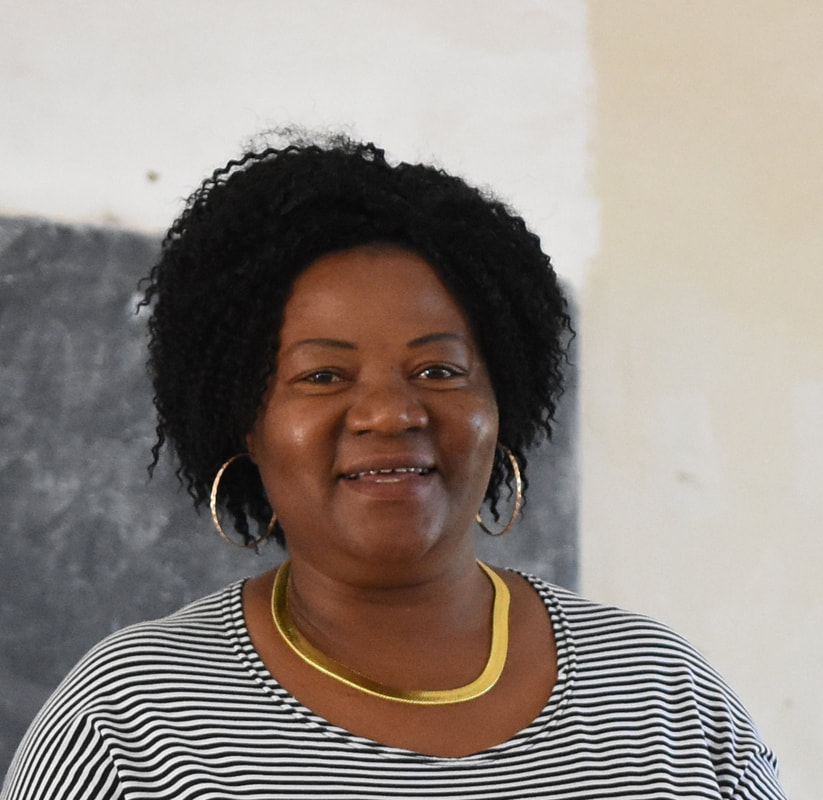Manufacture of Sanitary Pads Project
About this Project
|
|
This project focuses on providing washable, reusable sanitary menstrual pads in Mwanza, Tanzania. The project is based at Ibungilo Secondary School, where teachers observed a serious issue of girls skipping school during their periods every month due to lack of access to menstrual products and decided to do something to solve the problem.
Detailed Project Description [click here]
Throughout Tanzania, it is common for girls to miss school throughout the duration of their period due to lack of access to menstrual products. This is partly due to the fact that 70% of the population lives on less than $2 per day (World Bank, 2015), but also partly due to social taboo preventing the topic from being engaged with openly and freely. See a report from Unicef here for more details.
However, skilled labor and the right materials make it possible to make pads that are cheap but hygienic. This project involves buying soft, absorbent fabric in bulk and taking it to local tailors to manufacture sanitary pads. Each "kit" comes with 10 washable pads and two holders (wings) that keep pads in place. Recipients are educated in proper use and care, which helps the pads stay sanitary and usable for 1-2 years. See photos below for more information.
These pads will be distributed first at the Girls' Empowerment Clubs, then at Ibungilo Secondary School as a whole, and then throughout the community, depending on how funding develops.
However, skilled labor and the right materials make it possible to make pads that are cheap but hygienic. This project involves buying soft, absorbent fabric in bulk and taking it to local tailors to manufacture sanitary pads. Each "kit" comes with 10 washable pads and two holders (wings) that keep pads in place. Recipients are educated in proper use and care, which helps the pads stay sanitary and usable for 1-2 years. See photos below for more information.
These pads will be distributed first at the Girls' Empowerment Clubs, then at Ibungilo Secondary School as a whole, and then throughout the community, depending on how funding develops.
Facts about Gender Issues in Tanzania [click here]
- According to our local teachers, Tanzanian school children receive little or no formalized sexual education in school (2017).
- 18% of married women in Tanzania are married to men with more than one wife. This is much less common among educated women, urban women, and young women (Tanzania Bureau for Statistics (2016), p. 87).
- 32% of rural teenage girls and 19% of urban teenage girls in Tanzania are pregnant or have already given birth (Tanzania Bureau for Statistics (2016), p. 110).
- Tanzania has a de facto policy of expelling all pregnant girls from school and refusing to allow them to return (BBC, 2017). Furthermore, numerous cases of forced pregnancy tests have been observed in secondary schools (Center for Reproductive Rights, 2013). Around 8,000 girls drop out of school due to pregnancy in Tanzania each year (Human Rights Watch, 2017).
- 10% of women aged 15-49 in Tanzania have undergone female genital mutilation (FGM)(WHO International Fact Sheet #241), though 95% of Tanzanian women say the practice should be permanently abolished (Population Reference Bureau, 2017, p. 7; p. 10).
How You Can Help
|
This project belongs to the Kesho Fund's Gender Equity Program. You can support the Kesho Fund's Gender Equity Program by using this PayPal-protected "Donate" button:
How will my money be used? [click here]
This project belongs to the Kesho Fund's Gender Equity Program. Donations will be divided between this Sanitary Pads Manufacturing project and the other closely-related projects within our Gender Equity Program. Any funds beyond what this program can use effectively (current budgets on our Projects page) will spill over into our general use fund. How much should I donate? [click here]
Our suggested donation for the Gender Equity Program is $10-30 per month. Donating monthly helps us to make accurate plans for the future and maximize our impact. Every $8 in the Sanitary Pads Manufacturing budget can provide 1 student with a kit of 10 washable pads and 2 holders (wings). Each kit should last 1-2 years. Are there any other ways I can help? [click here]
Do you have a skill set or resource that you think could benefit this project? If so, please contact us at [email protected] to be put in touch with the project leader. |
|
Project Photo Gallery
Each kit comes with two pad holders (wings), 10 washable pads, a ziploc bag for storage, and a washcloth. The pads can be washed and reused and should last 1-2 years.
About the Project Leader
|
The Leader for this project is Oliver Kimathi, who also serves as Mwanza Outreach Coordinator on our Board of Directors. [click here]
Oliver Kimathi is an English teacher at Ibungilo Secondary in Mwanza, Tanzania as well as the supervisor for her school English club and an executive member of the Tanzanian English Language Teachers Association Mwanza chapter (TELTA Mwanza). Oliver received her certificate from Butimba Teachers College, her BA from Open University of Tanzania, and her Post-Graduate Degree in Education (PDGE) from the University of Dar es Salaam. Oliver has been leading girls' empowerment clubs in Mwanza since 2016 and is widely seen as a leader and a role model at her school and in her community. |
Project Budget Details
Intended Project Budget: $1-200 per month
Students Supported to Date: 1,525 (each supplied for 1-2 years)
Cost per Kit (10 washable pads and two holders): ~ $5
Lifespan of Kit: 1-2 years
Our Gender Equity Program is currently accruing $75 per month, which is split between this Sanitary Pads Manufacturing Project and our Girls' Empowerment Clubs Project (updated May 1, 2022).
Students Supported to Date: 1,525 (each supplied for 1-2 years)
Cost per Kit (10 washable pads and two holders): ~ $5
Lifespan of Kit: 1-2 years
Our Gender Equity Program is currently accruing $75 per month, which is split between this Sanitary Pads Manufacturing Project and our Girls' Empowerment Clubs Project (updated May 1, 2022).


